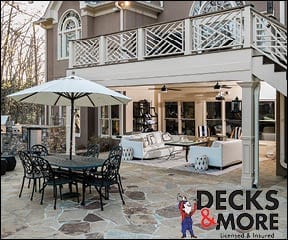Added Protection
Although many homeowners feel comfortable doing odd jobs inside the housepainting a wall, changing a light bulb or tightening the showerheadthe outside of the house might seem like a much more daunting challenge. Actually, you probably should feel somewhat less comfortable working on your homes exterior; the part of the house that protects you from the elements needs knowledgeable care to keep it in top shape. However, there are several things you can do to help maintain the integrity of your homes exterior, and sometimes knowing when to call a pro is the most important one.
|
SIGNS TO WATCH FOR |
TYPES OF EXTERIORS
Different materials require different types of upkeep, beginning with one of the oldest building materialswood. For Southerners living in warm and humid climates, wood presents special problems such as termites, mold and mildew. Outside the home, pressure washing can be used to keep mold off. In this respect, pressure washing is most important to a wood house, because while other building materials will not be destroyed by mold, wood can be, according to Bill Bartlett of DogGone Handy. All rotted and soft surface wood should be replaced immediately.
|
SIGNS TO WATCH FOR |
Due to the softer nature of the wood available these days (often it is grown too quickly), many experts recommend replacing wood altogether with vinyl or other types of synthetic siding. These materials are available for trim, siding overhangs and just about anything that was once made from wood. Lewis Kropp of Case Handyman recommends cement-based products that will not burn, rot or get eaten by bugs, as well as PVC products that can be solvent-welded. James Hardie and Azek are two of the leading companies producing these synthetic materials. Unlike most contemporary woods, these synthetics have warranties of 25 to 50 years. They can be painted, although some do not require it.
Brick and stone homes require very little maintenance and can easily last for more than a century. However, there are a few things to watch out for. If you notice plants, such as ivy, growing out of the exterior, clip them as close to the wall as you can, but do not pull them out, as this may loosen the mortar. The mortar holding your home together is less durable than the bricks or stones themselves. Every 10 years or so, have a qualified mason repoint by replacing and refilling old mortar. Youll also want to watch for persistent efflorescense, water-soluble salt deposits that may indicate that rainwater is penetrating the wall.
Stucco is a weatherproof, waterproof siding option that consists of a mixture of sand, cement and water, similar to the plaster used in your interior. It is also very low maintenance, but should be checked once or twice a year for cracks. Typically, cracks that are less than -inch in width do not require repair, but larger cracks should be filled in with more stucco or paintable caulk.
|
SIGNS TO WATCH FOR |
LAYERS OF PROTECTION
The top of the home exteriorthat is, the roofalso needs regular inspection. John Petty at R.S. Andrews recommends having a roof inspection every 10 years. Reputable companies will perform the inspection for free. The roof is not something to take lightly; if you suddenly notice a leak or water stain on the ceiling, it has already been leaking for a while, and you should call a professional immediately.
|
SIGNS TO WATCH FOR |
Gutters and overhangs also must be maintained and kept clean. Most gutters are hung on wood, and if water gets behind them, the gutter can start hanging off, leading to damage to your siding and trim. The wood soffit system also can be replaced by vinyl, making it maintenance free. When pine needles fall into gutters, they mix with water to create tannic acid, which can eat through a galvanized gutter. A shielding product can help, but be sure to keep it free of debris.
If your paint is in bad shape, water can get into the wood, leading to mold and mildew problems. If its time to repaint, there are several factors to consider. First, have your home pressure washed to prepare it for the new paint. Sammy Pegram of Georgia State Painting recommends using Benjamin Moore paint for exteriors, and he always includes a mildew-retardant M-1 additive in the topcoat.
Be careful when choosing paint colorsits best to stay with subtle, neutral tones. Pegram recommends looking at the color of any brick or detailing on the home and picking a color that blends in well. Having your paint sprayed on is usually the quickest and cheapest method, but a hand-painted job is likely to last longer. Pegram recently pressure washed a house that he painted by hand 10 years ago, and it still looked brand-new. A quality paint job on a 3,500-square-foot house can cost anywhere from $5,000 to $10,000.
|
SIGNS TO WATCH FOR |
CONTINUED MAINTENANCE
Wood is not the only exterior material that needs to be pressure washed; brick, stone and stucco do as well. You can rent a pressure washer and do it yourself, but if you are not experienced, be carefulusing too much pressure (especially if you have thin stucco) can lead to big problems, including cracks. Kropp says he has seen decks literally destroyed by too much pressure, with chunks of wood being washed away. In the end, it is best to hire a professional, and the good news is that it is not very costly. Many companies charge around $500 to pressure wash a 3,000-square-foot house.
|
SIGNS TO WATCH FOR |
Another thing to consider with any homes exterior is water. In heading off water damage, it is vital that all openings of the home are properly sealed. A few dollars spent on a tube of caulking can save thousands in damage. Caulking should be checked seasonally. Although the tube might state that it has a 20-year warranty, temperature changes cause caulk to shrink and leave gaps around windows and doors, inviting water into your home. You can apply new caulk yourself, but its a bit tricky. A great tip from Lou Alvarado of Handy Husband is to cut a small hole in the tube. Most people want to make a big hole in the tip, but one about -inch in diameter will help keep the caulking job from being a big mess.
Just as in health care, prevention is the best medicine for home exteriors. Many of the jobs that need to be done require technical skills, and if performed without them, can lead to new problems. It is often best to periodically call upon a home inspector to look for potential concerns to your homes integrity. A qualified home inspector who is associated with an organization like the American Society of Home Inspectors (ASHI) or the Georgia Association of Home Inspectors (GAHI) will know what to look for.
Overlooking a small problem now can lead to big repairs later. Heed the warning of Kropp, whose company repaired a house that lacked a 3-inch line of caulk around a second-story door. Water got into the walls and turned the framing to dust on both floors. Instead of paying for a tube of silicone, the homeowners ended up spending $7,000 on repairs. Proper maintenance will ensure that your home doesnt become the subject of a similar horror story.
Laura Judy contributed to this article

Best of 2018 Winners Revealed

11th Annual Atlanta Garden & Patio Show

Why is standing water in my crawlspace a problem, and how can I fix it?
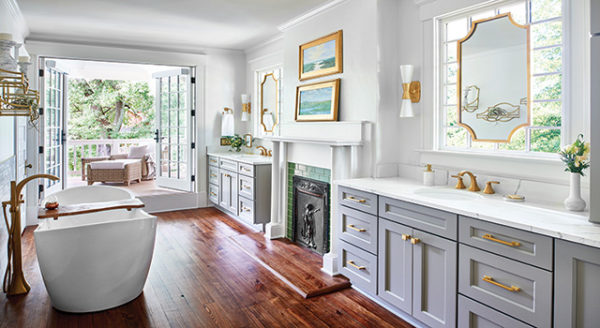
Award-Winning Kitchens, Baths, Interior Design and More
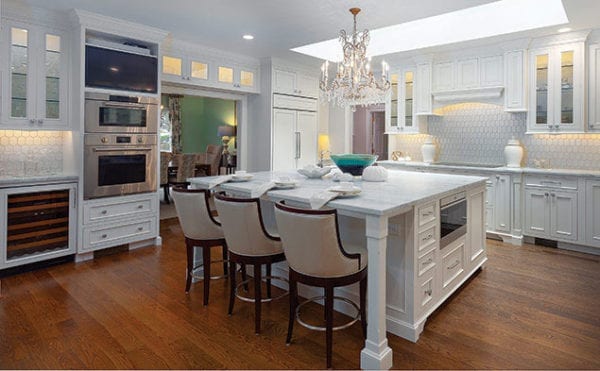
Atlanta’s NKBA Designs of Distinction 2019 Winners

100 Things to Know Before You Remodel

What’s the simplest way to upgrade your window treatments?
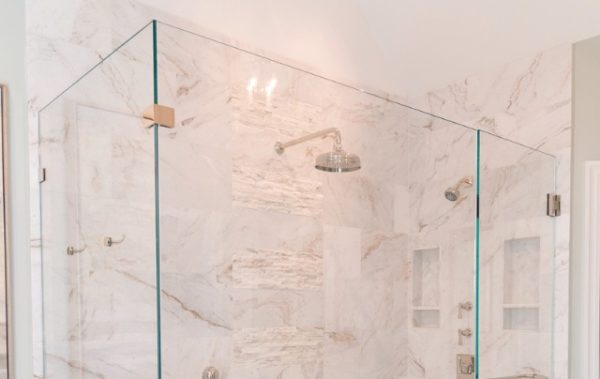
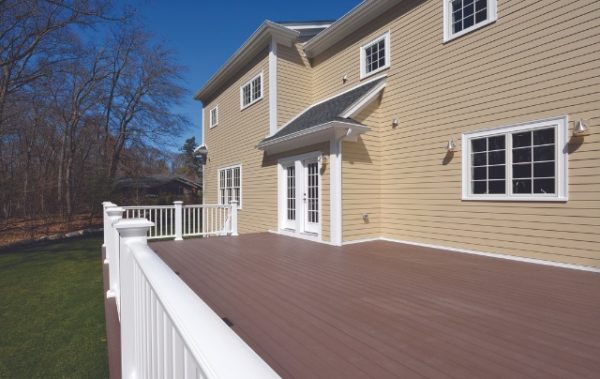



 WOOD
WOOD BRICK (AND STONE)
BRICK (AND STONE) STUCCO
STUCCO WINDOWS
WINDOWS ROOF
ROOF GUTTERS
GUTTERS